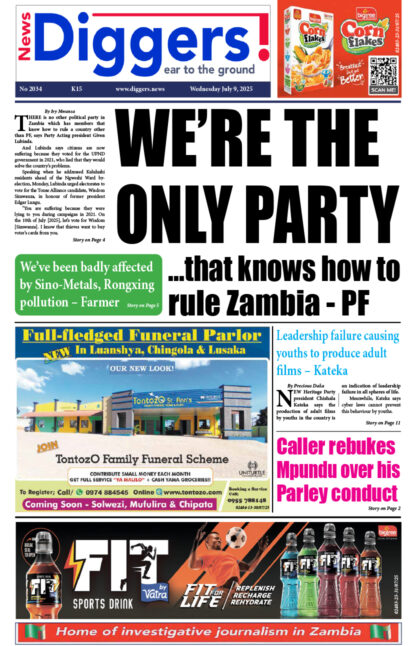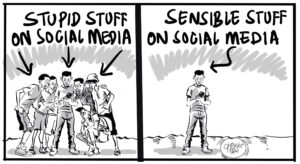THE Competition and Consumer Protection Commission (CCPC) has warned companies against engaging in cartel activities saying they are detrimental to the country’s economy.
Speaking when she featured on Hot FMs breakfast show, Tuesday, CCPC director for restrictive business practices Liamba Kapembwa disclosed that the commission was monitoring sectors of the economy and companies that had taken advantage of the COVID-19 pandemic to engage in restrictive business practices.
“Just to mention that the commission does continue monitoring the different sectors of the economy. We have been taking note of the complaints that have been coming through and we are currently investigating a number of economic sectors. Though I am not at liberty right now to state which sectors we are currently investigating for possible capitalistic conduct or generally restrictive business practices. We have also noted that companies have taken advantage of the COVID-19 pandemic to engage in restrictive business practices and we are also looking into that,” Kapembwa said.
She noted that cartel conduct was detrimental to the economy and that it was considered one of the worst forms of competition violations.
“Cartel conduct is very detrimental to the economy and it is considered one of the worst forms of competition violations and these usually carry the highest form of fines should the parties involved be found wanting. So with cartels, they really erode any form of competitive effects or benefits for consumers for the economy and they are the most affected from all this,” Kapembwa said.
“Cartel investigations do take a long time to conclude because a lot is involved in investigating and putting all the necessary evidence that is required to prove the existence of that cartel. Now, to start with, when the commission is suspecting a possible cartel in any given economic sector, we start with first studying the market [and] the behaviour of those enterprises that are operating in that market. So you look at differences, how are they behaving, how are prices being increased and are the parties increasing simultaneously. Are the differences in the increments quite minimal? So we do this market surveillance that may take about six months, just monitoring how the market is operating and behaving.”
Kapembwa however, said the commission was not mandated to set prices but rather to investigate potential unfair pricing practices.
“Just to be very clear, as a commission, it’s not our mandate to set prices. This is a free market economy so we do not in any way set prices. Our role is to investigate potential excessive pricing or unfair pricing or instances where we have a cartel in existence. So they are then effecting catalytic prices, these are not competitive prices. So our role is to investigate and determine what ideally would be a competitive price,” she said.
In reference to the recent cement cartel findings, Kapembwa disclosed that the funds that would be realised from the fines would support ongoing construction activities being carried out by government.
“What we have taken into consideration is that with the funds that may come out of this investigation, in as much as it goes back to the government, it is paid directly to the government. This goes on to support the ongoing construction. The projects that the government is undertaking right now such as the construction of roads, schools, hospitals and in the end, consumers will benefit from these facilities,” stated Kapembwa.



















